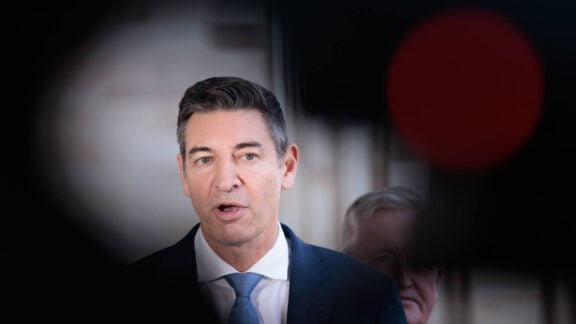Finance Minister Yannis Stournaras has confirmed Athens will request the launch of talks on debt relief at a Eurogroup summit next week as Prime Minister Antonis Samaras prepares a pre-election campaign that is expected to focus on growth-oriented measures after a long period of austerity.
Greece plans to press its international creditors on debt talks following the European Commission’s confirmation last week that the country posted a primary surplus. “The road for a discussion on debt relief is open,” Stournaras told a Greek-Chinese business conference on Monday, referring to a pledge by Greece’s creditors in November 2012 to launch talks on debt relief once Athens achieves a budget surplus before debt repayments.
“At the next Eurogroup on May 5, the Greek government will raise the issue,” Stournaras said. He added that Greece had achieved more than three quarters of the fiscal adjustment it needs to make its debt sustainable. “We estimate that more than 85 percent of the improvement in the general government primary balance, aimed at reducing our debt to sustainable levels by 2020, has already been achieved,” he said, noting, “we have almost reached the top of the mountain.”
Samaras is expected to strike a similar note in speeches over the coming days as the government gears up for European Parliament and local authority elections next month.
This week, the premier is due to speak at forums on energy and tourism, both sectors with significant untapped potential. But Samaras is expected to adopt a two-pronged approach in campaigning – emphasizing the country’s growth potential in a bid to raise hopes about job creation while also broaching the prospect for a constitutional review in an attempt to show that his administration is breaking from the past.
On Friday, Samaras is expected to unveil New Democracy’s proposals for a review of the constitution, which could include sweeping reforms affecting how the government and Parliament operates. The proposals are expected to include re-examining parliamentary immunity for MPs, setting a limit on the time a prime minister can serve in office and improving the transparency of party finances. Another key reform that the premier might put on the table, according to sources, is the reduction of the number of MPs that sit in Parliament from 300 to 250 or 200.
Source: Kathimerini






